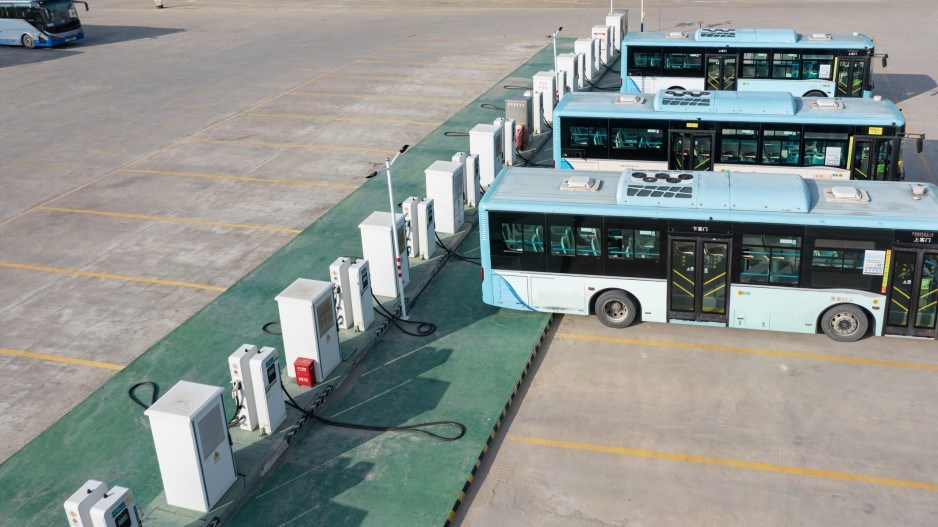B.C. Transit says it will purchase up to 115 battery-electric buses and install 134 charging points around the province, thanks to an almost $400-million joint investment by the provincial and federal governments.
The goal is to reduce greenhouse gas emissions and local air pollution.
“We are making a game-changing investment in public transit across British Columbia,” said Patrick Weiler, MP for West Vancouver—Sunshine Coast. “We are strengthening the connections in our communities, reducing congestion, and making transportation more accessible and healthier for all. This investment will make a meaningful contribution in our plan to eliminate emissions from the transportation sector, which represents the second largest source of emissions in Canada.”
Provincial Transportation Minister Rob Fleming said investment in modern electric buses and infrastructure improves access to clean and convenient transit services and prioritizes the well-being of both people and the environment.
Ottawa has committed to putting 5,000 zero-emission public transit and school buses on the roads by 2026.
The announcement aligns with the province’s CleanBC emission-reduction goals and B.C. Transit’s goal to transition to an electric fleet by 2040.
“Funding provided through the Zero Emission Transit Fund and the Investing in Canada Infrastructure Program supports Phase 1 of B.C. Transit’s plans to have our fleet fully electric by 2040,” said Erinn Pinkerton, chief executive at B.C. Transit.
Ottawa is kicking in $82 million from the Zero Emission Transit Fund and $88 million from the Canada Infrastructure Program. The province is contributing $159 million and recipients of the buses and infrastructure are contributing $67 million.




